
PRAISE FOR
Pain Studies

Olstein offers readers an eclectic and deeply personal set of meditations on pain as experienced and remembered, inflicted and endured, perceived and denied. Through neuroscience, literature, and history, from hit TV shows to classical philosophy, this is a unique and fascinating contribution to the literature of pain in general, and migraine in particular.Katherine Foxhall, author of Migraine: A History
In Pain Studies, Olstein paints a sharp-witted and insightful picture of the rollercoaster ride that is called pain. Her own experiences allow her to approach the topic in a way that provides relevant reading to anyone treating or living with chronic pain. As doctors, we need to find more effective ways to help patients dealing with pain. This book is a step in that direction.Jill Heytens, M.D., neurologist
Like a prismatic series of artists sketches, Pain Studies offers a dazzling variety of perspectivespersonal, political, phenomenological, lyricalon the unanswerable question of human suffering. Through virtuosic readings of everything from pre-Socratic philosophy to the trial transcripts of Joan of Arc to the cultural semiotics of House M.D., Olstein brilliantly extends the literature of pain into our contemporary historical moment. But this searching work also illuminates how pain studies us. Turning the last page on Olsteins agonistic anatomy, weve come to know one of hurts intimate acquaintances, unbroken by her suffering, or if broken in parts, then painstakingly remade.Srikanth Reddy, author of Voyager and Changing Subjects: Digressions in Modern American Poetry
Pain Studies
Lisa Olstein

Bellevue Literary Press
NEW YORK
First published in the United States in 2020
by Bellevue Literary Press, New York
For information, contact:
Bellevue Literary Press
90 Broad Street
Suite 2100
New York, NY 10004
www.blpress.org
2020 by Lisa Olstein
Library of Congress Cataloging-in-Publication Data
Names: Olstein, Lisa, 1972 author.
Title: Pain studies / Lisa Olstein.
Description: First edition. | Bellevue Literary Press : New York, 2020. | Includes bibliographical references.
Identifiers: LCCN 2018061040 (print) | LCCN 2019007332 (ebook) | ISBN 9781942658696 (ebook) | ISBN 9781942658689 (trade pbk. : alk. paper)
Subjects: LCSH: PainPatientsBiography. | Pain perception. | PainHistory. | PainSocial aspects. | PainPsychological aspects. | PainPhilosophy. | Pain in literature. | Pain in art.
Classification: LCC RB127 (ebook) | LCC RB127 .O42 2020 (print) | DDC 616/.0472dc23
LC record available at https://lccn.loc.gov/2018061040
All rights reserved. No part of this publication may be reproduced or transmitted in any form or by any means, electronic or mechanical, including photocopy, recording, or any information storage and retrieval system now known or to be invented, without permission in writing from the publisher, except by a reviewer who wishes to quote brief passages in connection with a print, online, or broadcast review.
Bellevue Literary Press would like to thank all its generous donorsindividuals and foundationsfor their support.

| This publication is made possible by the New York State Council on the Arts with the support of Governor Andrew M. Cuomo and the New York State Legislature. |

| This project is supported in part by an award from the National Endowment for the Arts. |
Book design and composition by Mulberry Tree Press, Inc.
Bellevue Literary Press is committed to ecological stewardship in our book production practices, working to reduce our impact on the natural environment.
 This book is printed on acid-free paper.
This book is printed on acid-free paper.
Manufactured in the United States of America.
First Edition
135798642
paperback ISBN: 978-1-942658-68-9
ebook ISBN: 978-1-942658-69-6
for David and Toby
and in memory of
Marion Daniels Covich (Annie)
Contents
Pain Studies

All pain is simple. And all pain is complex. Youre in it and you want to get out. How can the ocean be not beautiful? The ocean is not beautiful today.
Pain is pain: vivid even in its opacity, vague even in its precision. Pain reduces and expands, diminishes and amplifies, bears down upon us, wells up within us, goes by the as often as by my, and only rarely by our.
Fuck-fuck-fuck-fuck was when, circa hour seventeen, the doula knew I was fighting the pain rather than moving through, going deep, riding it, whateverwhen she knew I would disappoint her. I want to talk about an epidural now. My birth plan included something along the lines of please-dont-offer-me-pain-medication-I-know-my-options-and-will-avail myself-of-them-if-I-choose. My mother always claimed she enjoyed giving birth and fought to do it naturally three times before it was the fashion. How about we try the tub? she asked. Get me the anesthesiologist, I answered.
For nine months, Id been migraine-free every day but two, a couple of hours, really, and mild, which was akin to a personal version of shattering the headache-free heavyweight world championship record. Colonized by plenty of other symptoms, my headleft frontal quadrant: check; right frontal quadrant: check; base of skull, top of scalp, lateral plane 1.5 inches down: check; eyes and eyebrows, temples: checkhad been pain-free. Now labor pain was all pain, was all me. Get me the anesthesiologist, please.
Later, Id worry this is characterological, that I flee too quickly, too desperately into the arms of an immediate solution, be it Advil for cramps, migraine meds for migraine, epidural for this. I worry this tendencyweakness, fear, lack of imagination?might infect my parenting, as well. I wonder if its bred by the countless hours Ive spent in uncontrollable or barely controlled pain, a specter always shifting. Not if. More like how much (a lot) and how (so many ways).
Perhaps youll be relieved to learn, or maybe youve already guessed, that labor pain is not the pain I wish to discuss. The truth is, I couldnt. Seventeen hours and donenot the labor, but the pain, neatly ended by a spinal blockthe blink of an eye, really; a memory, certainly, but one that draws dusky only a rickety bridge from here to there. Labor pain is like all pain, unknowable except while being lived. Fundamentally a creature of the present, physical pain remembered is by definition pain divorced. The difference between recalling the flu and having itbetween expecting a child and having oneis like the difference between hearing a description of waves and drowning.
Drowning is one of the words we use to describe pain when were desperately in it, though often its used for other things, too: heartbreak, overwhelm. Ive never experienced anything close to drowning, but I imagine that, like pain, it has a way of flooding you with the present. Yes, it makes you hazy, it fogs up memorys edges, but in the moment, it is the moment and you are nowhere else except and only exactly where it puts you.
Next page
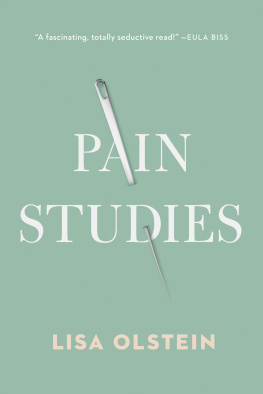
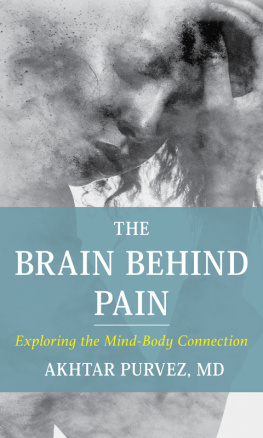
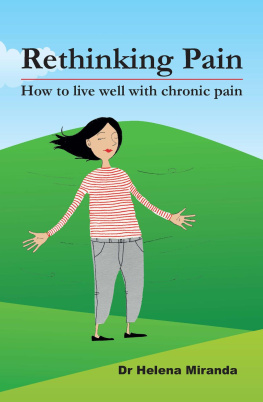
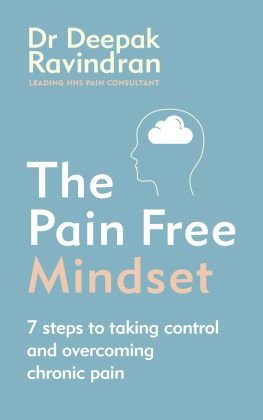
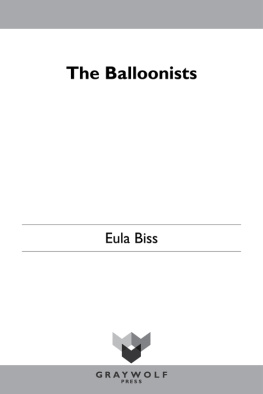
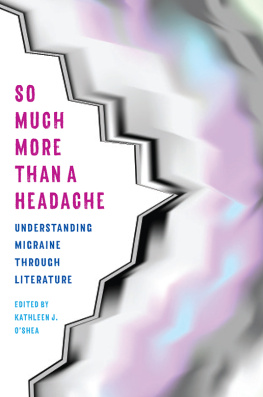


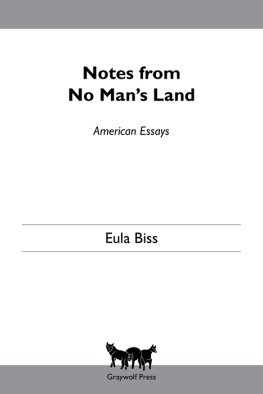
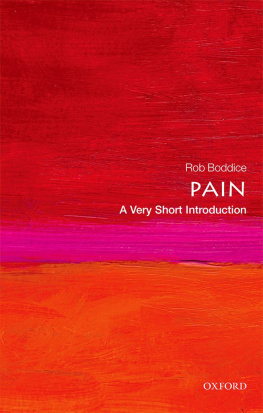
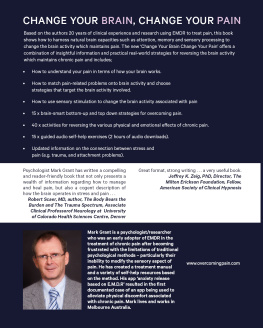
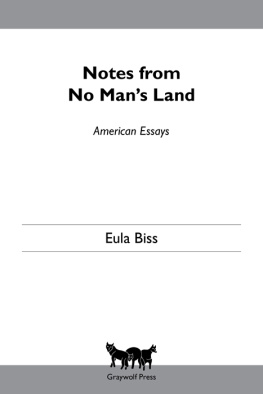
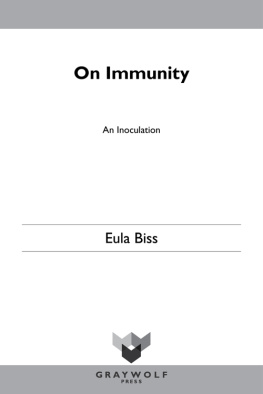





 This book is printed on acid-free paper.
This book is printed on acid-free paper.